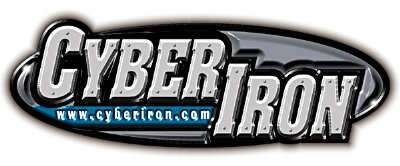Zone Diet Good or Bad for Bodybuilding
Arguments Against the Zone
There is no evidence in the scientific literature to support the use of the Zone as an optimal muscle-building diet. If anything, the Zone may be one of the worst, for these reasons:
a. The Zone supports a high protein to carbohydrate ratio. However, there is a negative correlation between the protein-carbohydrate ratio and serum testosterone levels (1). A diet of 10% protein has been associated with higher testosterone levels than a diet of 44% protein (1). The Zone recommends a diet of around 30% protein. Therefore, the Zone may result in lower serum T levels than other types of diets.
b. If I remember correctly, Sears recommends about 1.0-1.6 g of carbohydrates for every gram of protein ingested, and about .4 g of fat for every gram of protein ingested. Sears also recommends ingesting about a gram of protein per lb of bodyweight. Now, let's say I'm a 160 lb person. This means I would have to ingest 160 g of protein a day, 256 g carbs, and 64 g of fat. This is a total 2240 kcal per day. This is not even close to enough calories to support building muscle while on a weight training program. Elite athletes need anywhere from 47 to 60 kcal/kg of bodyweight each day (2). For a 160 lb person, this is 3418 to 4364 kcal per day. To increase muscle mass by 1 lb a week, as much as 30 calories per lb of bodyweight is needed (3). This is up to 4800 kcal per day. Sears's caloric recommendations don't even get much higher than the estimated REE for a 18-30 year old male, which is 15.3 x wt(kg) + 679 (4). For our 160 lb athlete, this is 1792 kcal per day.
c. The protein recommendations of the Zone are too high. 1.5-2 g per kg of bodyweight is optimal for strength athletes as long as caloric intake matches energy expenditure (5).
d. Sears's carbohydrate recommendations may be too low. A 65% carbohydrate diet has been found to result in better muscle gains than a 40% carbohydrate diet (4).
e. There is no evidence in the scientific literature to support Sears's claim that the ratios he recommends will result in an optimal hormonal environment for muscle growth. The hormonal responses to food depend upon many factors, and not just the ratio of protein to carbohydrates to fats. The glycemic index of the foods ingested, the insulin sensitivity of the person eating the food, the amount of food ingested, etc., all are factors involved in the hormonal response to food. Trying to get it down to some type of "Zone" is foolish.
It is interesting that you pointed out that Vince Gironda nutrition uses a Zone type diet. Hmmm. The diets that I've seen Gironda write about have always been high-fat ketogenic diets, with an occasional carb load. This is more like what Mauro Di Pasquale recommends and not what Barry Sears recommends. The Zone diet is not a ketogenic diet.
You also made the comment, "I hope you try it, you'll like it." Well, I tried the Zone diet a couple years ago. I lost alot of weight on it, too. Lean weight, not bodyfat, since I never had much bodyfat to begin with. So much for the anabolic potential of this diet.
For all those people trying to build muscle out there, total caloric intake is ALWAYS the most important factor (5). The ratio of nutrients ingested is secondary. The Zone diet does not allow for enough calories.
1. Volek, J.S., W.J. Kraemer, J.A. Bush, T. Incledon, and M. Boetes. Testosterone and cortisol in relationship to dietary nutrients and resistance exercise. J. Appl. Physiol. 82(1):49-54. 1997
2. Economos, C.D., S.S. Bortz, and M.E. Nelson. Nutritional practices of elite athletes: Practical recommendations. Sports Med. 16(6):381-399. 1993.
3. Wheeler, K. Proteins and amino acids. NSCA Journal. 10(6):22,28-29. 1988.
4. Ellis, D., and K. Gabel. Weight gain guidelines for athletes. NSCA Journal. 13(3):20-23. 1991.
5. Walberg-Rankin, J. A review of nutritional practices and needs of bodybuilders. J. Strength and Cond. Res. 9(2):116-124. 1995.
Click Here For Your Free Bodybuilding and Powerlifting Magazine
Disclaimer: Information provided on this site is for entertainment purposes only. Any suggestions given are in no way intended to be a substitute for professional medical advice. CyberIron.com assumes no responsibility for personal injury or damage sustained by or through the use of any advice given or products suggested.
[ Supplements ] [ Nutrition ]
[ Steroids ] [ Forum ]

